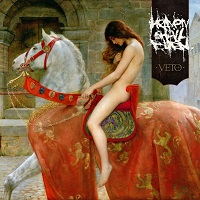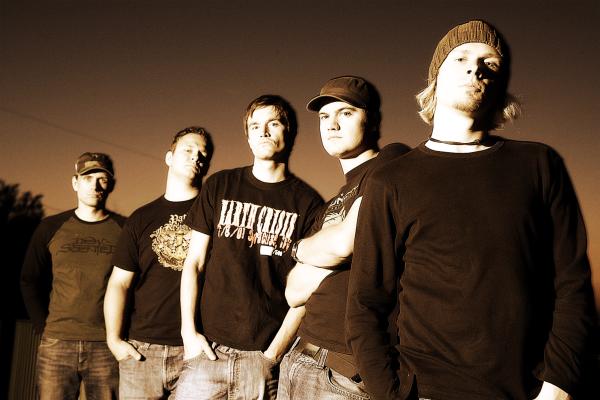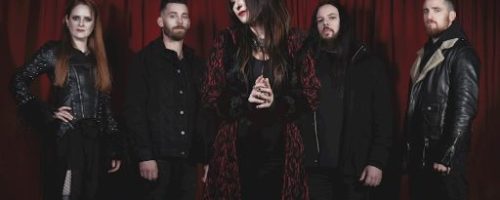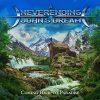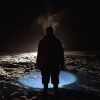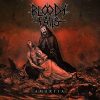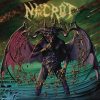Heaven Shall Burn – No Truth Without Sacrifice
Thursday, 19th March 2020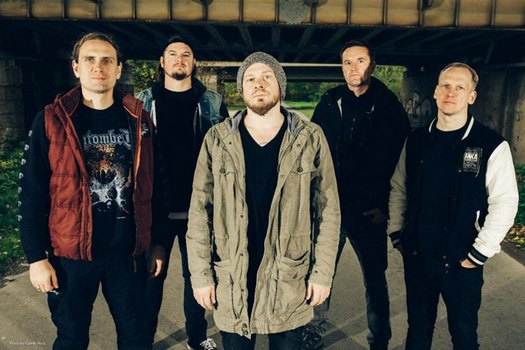
Long have Heaven Shall Burn putting out their particular message to the metal masses. Over twenty years and now nine albums, in fact. Their aggressive form of metalcore always stuck to the heavier end of the genre, and showcased a sense of Gothenburgian melody when the opportunity arose. With their ninth album, Of Truth and Sacrifice, fans can expect them to be right back at it again, but they also have expanded a bit, due to the fact that Of Truth and Sacrifice is a double album, and there are a number of experimental tracks for fans to dive into. We chatted with the band over Skype to dig into some of these details, as well as a look back through the band’s relationships with other German metalcore bands, how they survived after metalcore had fallen from its peak, and more.
Dead Rhetoric: Do you feel that taking a bit of a break allowed you to come back really refreshed when it came to songwriting time?
Maik Weichert: Totally refreshed – we are all like 40 years old, I don’t think you reach that state again where you are totally refreshed. But of course, it we had a lot of power and it was a creativity explosion when we started songwriting. It was clear pretty soon that it would be a double album just with the sheer amount of material that we had gathered. That was definitely due to the break we had.
Dead Rhetoric: What do you feel defines Of Truth and Sacrifice, as the band’s ninth album?
Christian Bass: The experimental parts I would say. Plus it’s the first double album that Heaven Shall Burn has done. It’s the first one with a real orchestra. There are also two strong records, as a double-album. Just to give you some bullet points.
Weichert: If you look at the previous 8 records, it’s a logical step for our ninth record. I think we took strong moments from our other albums and put them into this record. You can find riffs that sound like our first record, just translated into today’s Heaven Shall Burn agenda. I think if you listen to one record after another, they are all logical steps from the previous record. I think the new record is the most ambitious record we have done – I can’t say that it’s the best, or if we are descending in quality, that’s for journalists like you to decide. But for us, it’s definitely a logical step. If you look at the last record, you can already guess certain ways of development, of the sound especially. I think we are going a step back with the sound; it sounds more natural and not overproduced like some of our 2000s records. What do you think?
Dead Rhetoric: I do think you have a certain, distinctive sound at this point with Heaven Shall Burn. It’s those little tweaks along the way. I like the strings in there, because it does add some different flavors in there.
Weichert: I think the level of experimentation is a lot bigger compared to our old records. In our old records, experiments were just certain song parts or riffs. Now we have whole songs that are experimental. With a double record, you have the space to do so.
Dead Rhetoric: There’s been a shift with more bands with double-albums to release them separately or give a few months in between. What made you stick with a pure double-album release?
Weichert: I think you are already using the right word with pure. I’m an old metalhead, and to me, double records from a band is something special. When we had marketing meetings, of course, people said we should do things like release 4 EPs with that amount of material, or 20 singles – then we would always be fresh in things like Spotify playlists. We just said no – we don’t want that. We just want to deliver a block of a record; a real whopper. People have to invest some time to understand it and hear everything. Like a double record back in the day from my hero bands. That is something that we wanted to set as an anarchistic sign, against the market-driven, song-streaming days. Of course, the record still works on the streaming services, but for people who are still buying physical records, it’s really something special for a band to deliver something like that. It’s just what we wanted to do.
Dead Rhetoric: Could you specifically discuss the two longest tracks, “Expatriate” and “The Sorrows of Victory?”
Weichert: “Expatriate” is maybe the most experimental song on the record. Our singer just singing a small part of the song, like the spoken parts – that was already an experiment. There’s also the classical recordings for that song too. Even the metal riffing, at least by Heaven Shall Burn standards, is pretty unique. We are really proud of that song. It’s very interesting that journalists, who listen to a lot of music and listen to music professionally, are impressed by that song. It sounds pretty refreshing to them, not like an ordinary metal song. We really didn’t know how people would react to that song, but so far there has only been a positive response, so we are pretty glad about that.
“The Sorrows of Victory” on the other hand, I think it’s a conglomerate of different sounds. The beginning of the song is like darkwave version of Manowar or something. Then the song goes into more of a death metal thing, and there’s Bathory-like part. It’s almost like a small, metal opera in itself. We always wanted to do a song that was a rollercoaster of styles and emotions, and we are really happy that we had the space on the record and the time to create a song like that. We are really proud of it.
Dead Rhetoric: I wanted to go back to the strings on the album. Where was the decision made to include them – was it related to having the extra space to work with?
Weichert: From the beginning, like 2004 with the Antigone record we had string arrangements from Ólafur Arnalds, an Icelandic composer. He also worked with us on other records as well. This time we wanted to compose something on our own, but inspired by what Arnalds did for us back in the day. We wanted to have this more intimate kind of classical music. Not this broad, Lord of the Rings/Dimmu Borgir sound that you can do with synthetic sound banks. We wanted an intimate, almost string quartet impact. It creates more emotion for people, and brings out a lot more movement in the shades of the music than a big, Wagnerian orchestra. We had help from our friend Sven Helbig, who has worked with Rammstein. It was a great experience that we want to have again.
Dead Rhetoric: What can you say about the artwork – it’s a very striking cover image.
Weichert: The artwork is pretty much an allegory of the title, Of Truth and Sacrifice. Obviously there is a mother and child, and the mother protects the child. The child is naked, which is a symbol for the naked truth. The mother symbolizes sacrifice, for the child. You can also see that the child is using the spear that pierced the mother to stand and keep upright. It’s a really strong symbol for the relationship between the truth and sacrifice. I think Eliran Kantor did a really good job with the painting and allegory of truth and sacrifice.
Dead Rhetoric: We touched on this before, but Heaven Shall Burn has a distinctive sound – how do you approach a new album and putting some tweaks into the formula?
Weichert: To be honest, it’s not a conscious decision. We tried so many different things and tunings, sounds, and studios but in the end it always ends up sounding like Heaven Shall Burn. We don’t know why, to be honest [laughs]. Even if we have a more experimental song, in the end when our singer starts to scream over it and everything is recorded, it still sounds like Heaven Shall Burn. So I don’t quite know the answer to that.
Dead Rhetoric: You’ve had social and political lyrics throughout the band’s history. What’s your take on solving some of the problems of the world today?
Weichert: I think the first and most important step is that people who want to change something start by changing themselves. I really hate the tendencies that people are jumping on the big problems in the world, and deliver phrases and shallow solutions and do not start to change their own lives. I think that’s the first step – to change their lives and mindsets, then things will change in society. You can’t start changing the world with the bigger end, you have to start with yourself.
Dead Rhetoric: What do you feel has allowed Heaven Shall Burn to continue onwards, even with being lumped in with the metalcore scene when it was at its height?
Bass: I think that one of the reasons is that Heaven Shall Burn never followed a trend, and never tried to be a band that needed to sound like another band to get some attention. Plus all of the political views that Heaven Shall Burn presented, and represented, the people recognized that there is something special about it. It’s hard to tell when you are a part of the band.
Weichert: I think one very important thing is that we never really tried to make a living off of the music. That made us so relaxed that we didn’t follow any trends. For some, there was this big metalcore peak, and we were hyped as well – when the metalcore hype was gone, there was still a hype around us. We didn’t know why but maybe it was because we didn’t follow any trends within the metalcore scene. Like bands like Killswitch Engage didn’t sound like Black Veil Brides or other bands at the other end of the metalcore peak. Many bands within the metalcore scene tried to follow a trend. I think that metalcore bands who are still successful today, like Killswitch Engage or As I Lay Dying, or even Heaven Shall Burn on a smaller level at least in North America. They always followed their own sound; even if you are part of a trend, you don’t follow the trends within the trend.
Dead Rhetoric: What does Heaven Shall Burn mean to you at this point in your life?
Weichert: It’s a very important, maybe 50% of our lives. Nobody in the band dedicates their whole life to the band, and that is something really vital for Heaven Shall Burn. It’s not a negative thing, it’s very positive. We have another 50% of our lives that we have our jobs, friends, and families that have nothing to do with the metalcore scene. It empowers you to go back to the band and do great things. It’s a very important balance that we have. When I am doing university, I am happy to leave the books and go on tour. But once I am in the coach and go on tour. But when I am on a bus for 4 weeks, I am also very happy to back to the library and read books. One part of my life empowers the other part of my life, and I think that’s the same for the other guys in the band as well. We don’t play 300 shows a year, we maybe play 50 shows and do some cherry picking. That’s a lot more fun. You have a life outside of the band.
Dead Rhetoric: Could you talk about the German scene – specifically your relationship with bands like Caliban and Neaera?
Bass: I think Caliban is one of those bands that everyone of us has known from the beginning. I played in a different band before I started with Heaven Shall Burn, and had already been in contact with Caliban, and I realized that the two bands are doing records together. We grew together in this way. It’s nearly the same with Neaera. We have been friends with them since their very first days. I don’t remember when they started…
Weichert: They actually started out as Heaven Shall Burn fans. It always makes me wonder how old I actually am! Neaera has been there forever. Toby, one of their guitarists is always telling me that in the beginning, they just stole our riffs since they were big fans. Of course, it makes you proud that such a really good band is inspired by your band, but it also makes you think about how long you have been going for already. For example, Caliban played with us on our first shows before we even had demos recorded. That’s a very long friendship. Neaera is more of the second wave of the German metalcore scene. You may compare it like Caliban and Heaven Shall Burn are like Testament and Metallica and Neaera was like Machine Head [laughs].
Bass: There are plenty of other bands that have come up through the years that we have a really good relationship with, like Nasty. We really like to meet up with bands at festivals and keep up with friends in bands that we met through the years in a non-business relationship.
Dead Rhetoric: What’s planned for the rest of 2020?
Weichert: We are focusing mainly on festival season – we didn’t play shows for two years, so it’s very thrilling for us to go back to the stage and see how fit we are still. It’s a positive tension, but it’s still a tension. It’s like dating a girl and not having had sex for five years. You remember how to do it, but you don’t know if it works [laughs]!













